KS’ entry into the gravel suspension world looks impressive – the GTC is a fork that offers a lot of bang for your buck.
The slick-looking fork combines its carbon fibre lower legs and brake arch with a forged alloy crown and anodised aluminium stanchions. An external lockout lever integrated into the damper enables on-the-fly adjustment.
For the money, the KS GTC fork is impressive, with performance and reliability that stands up to plenty of gravel riding abuse. It can’t quite reach the highs of Fox or RockShox competitors, but it’s still a top-level option.
KS GTC specifications and details
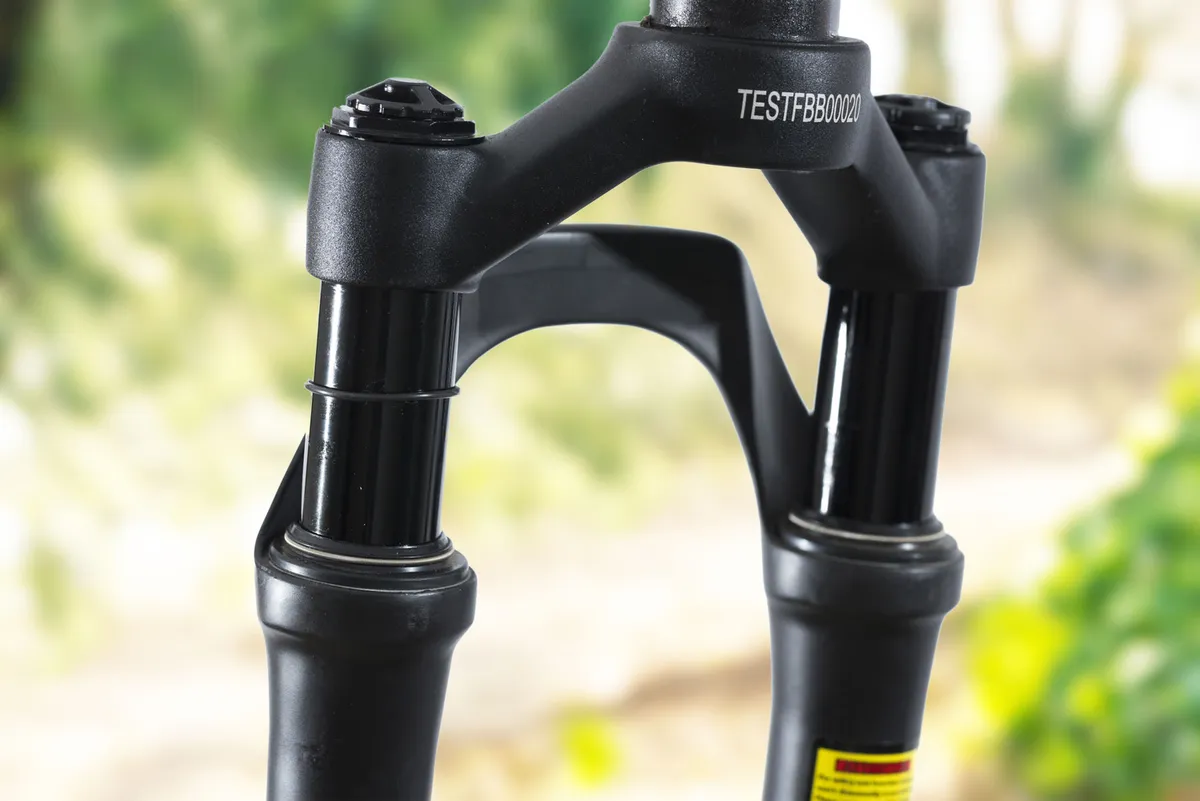
The KS GTC fork is designed to deliver 40mm of travel, with an axle-to-crown length of 432mm and a rake of 46mm.
Accounting for sag on setup, this reasonably short fork shouldn’t have too dramatic an effect on your bike’s geometry.
The lower legs and brake arch are made from carbon fibre, with the skinny 30mm stanchions bonded into a 6066-T6 alloy forged crown and tapered steerer.
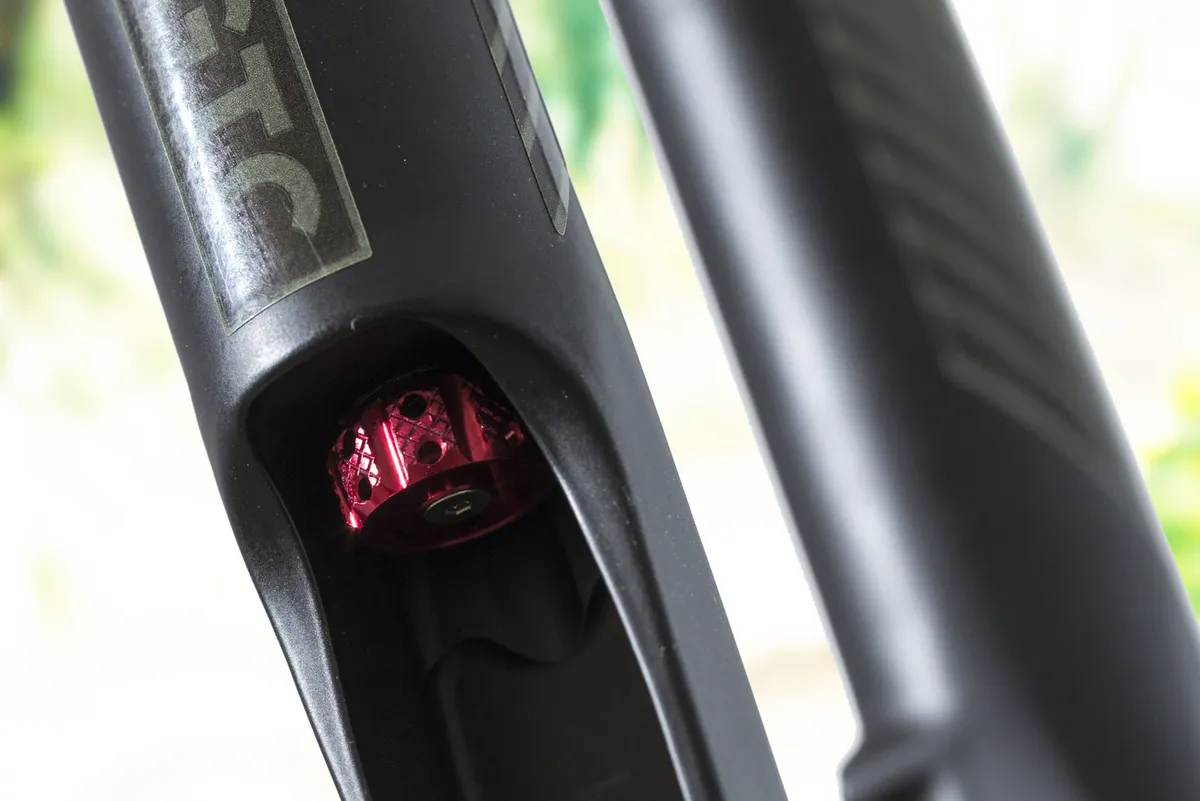
At 1,470g, the GTC isn’t as light as I'd expected with this much carbon in its construction. That's down to the wall thickness of the stanchions.
Adjustability comes in the form of a low-speed compression-damping dial on the top of the fork leg, along with a lockout lever and rebound adjustment on the bottom of the right leg.
With flat-mount disc brake compatibility and the capability to sport 160mm and 180mm rotors, plus generous 50mm tyre clearance, the GTC looks well-specified for the money.
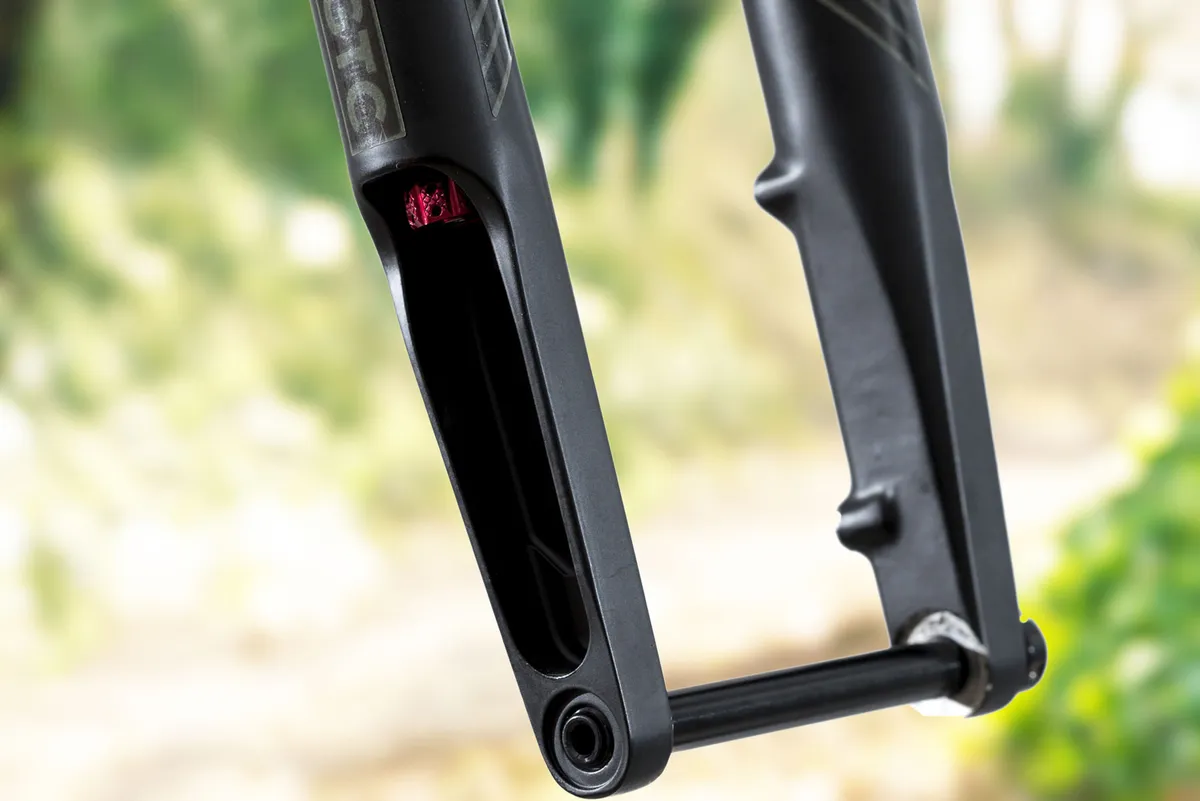
There are few other gravel suspension forks at this price point, aside from SR Suntour’s GVX.
At £180 less than the RockShox Rudy XPLR Ultimate and £400 cheaper than the Fox 32 Taper-Cast Factory, the specs are impressive.
KS GTC strip-down
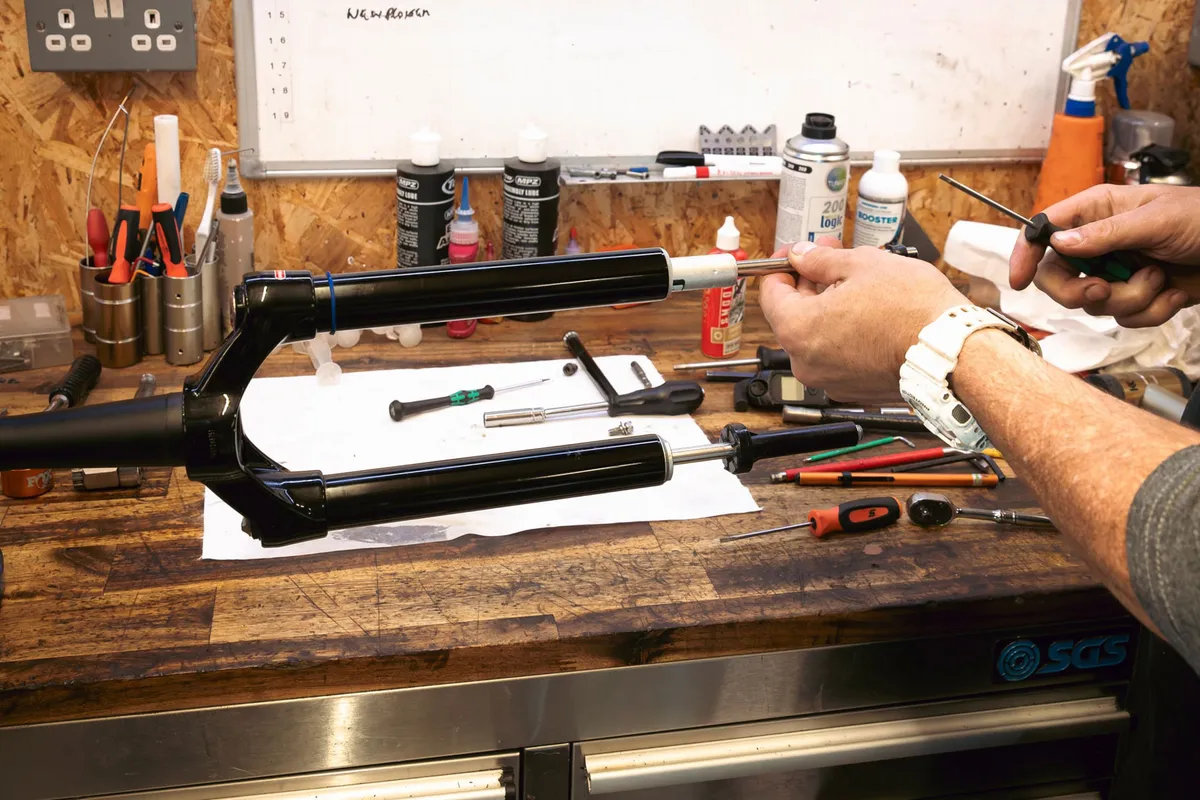
The KS GTC has great-quality soft seals, which you don’t normally find on lower-priced forks.
The stanchions are small in diameter but the tube walls are noticeably thick, which is great for strength and stiffness, but not for weight reduction.
The damper cartridge is excellent, very well made and bespoke to this fork.
The inclusion of an expansion chamber is a smart one, which should ensure it delivers consistent performance without the fork sticking or stiffening up at the limits of its travel when working hard.
The aluminium shaft on the spring stack unfortunately hasn’t been polished. In the long term, that could lead to corrosion if the seals fail (we stripped the shaft down and polished it as part of the strip-down service – one of the reasons it’s good to get your fork serviced professionally).
The KS GTC is an easy fork to service and I was impressed by how well it's put together for a very reasonable price.
KS GTC ride impressions
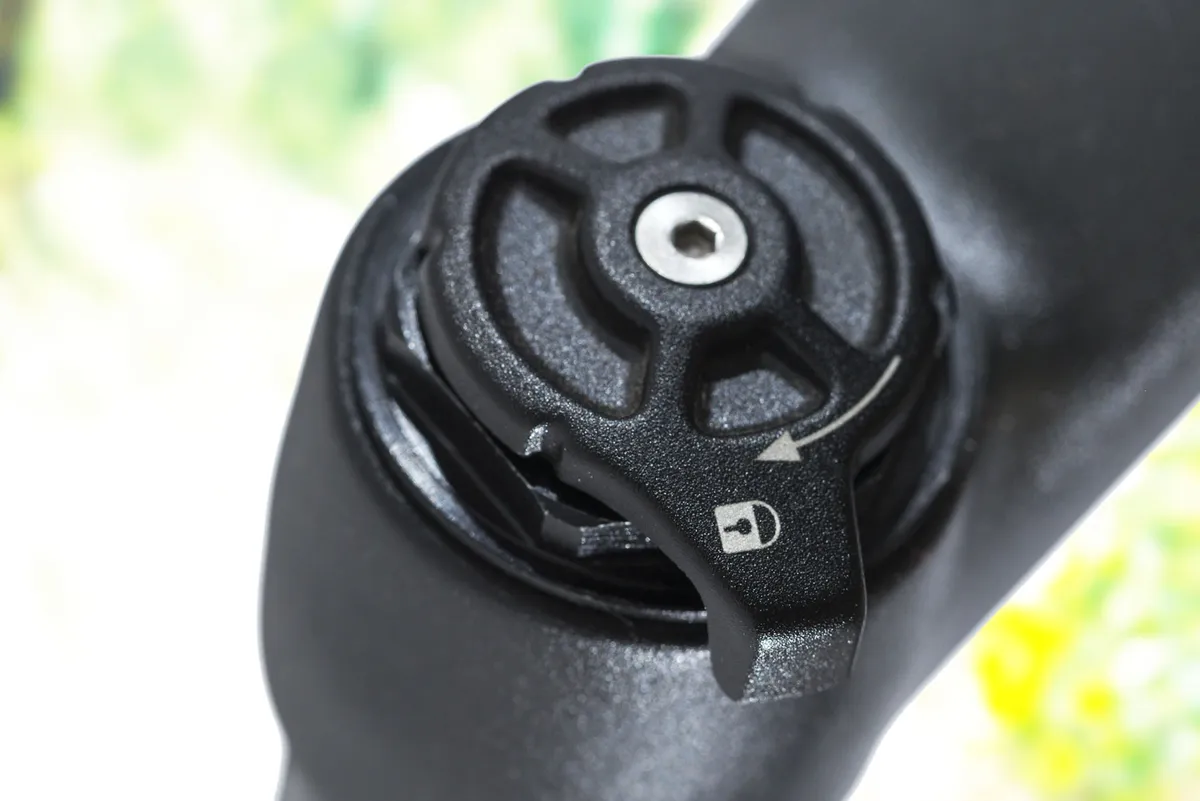
From the first outing, it was apparent KS had set out to make a pure gravel fork, as opposed to adapting a mountain bike fork. It’s all about removing chatter and improving comfort.
Despite having smaller-diameter stanchions than its rivals, it felt like one of the stiffest gravel forks I've tested, which could be down to the thickness of the material used.
This likely accounts for the weight too, considering the KS fork's carbon lowers.
While the fast chatter response over washboard surfaces was excellent, the small-bump response is average and on bigger hits it ramps up well in a controlled manner.
The rebound adjustment isn’t as tuneable as the RockShox or Fox forks I've tested. The dial on the lower leg doesn’t have any defined clicks or steps and took a lot of turns to induce any real change when I wanted to increase the rebound speed.
On medium and bigger hits, it felt a little sluggish and slow to respond. It’s worth noting the fork didn’t elicit any increase in stiction – its action is just slower compared to rival forks.
This sensation was multiplied on the largest hits, but the fork ramped up well through its travel, so it never bottomed out.
KS GTC bottom line
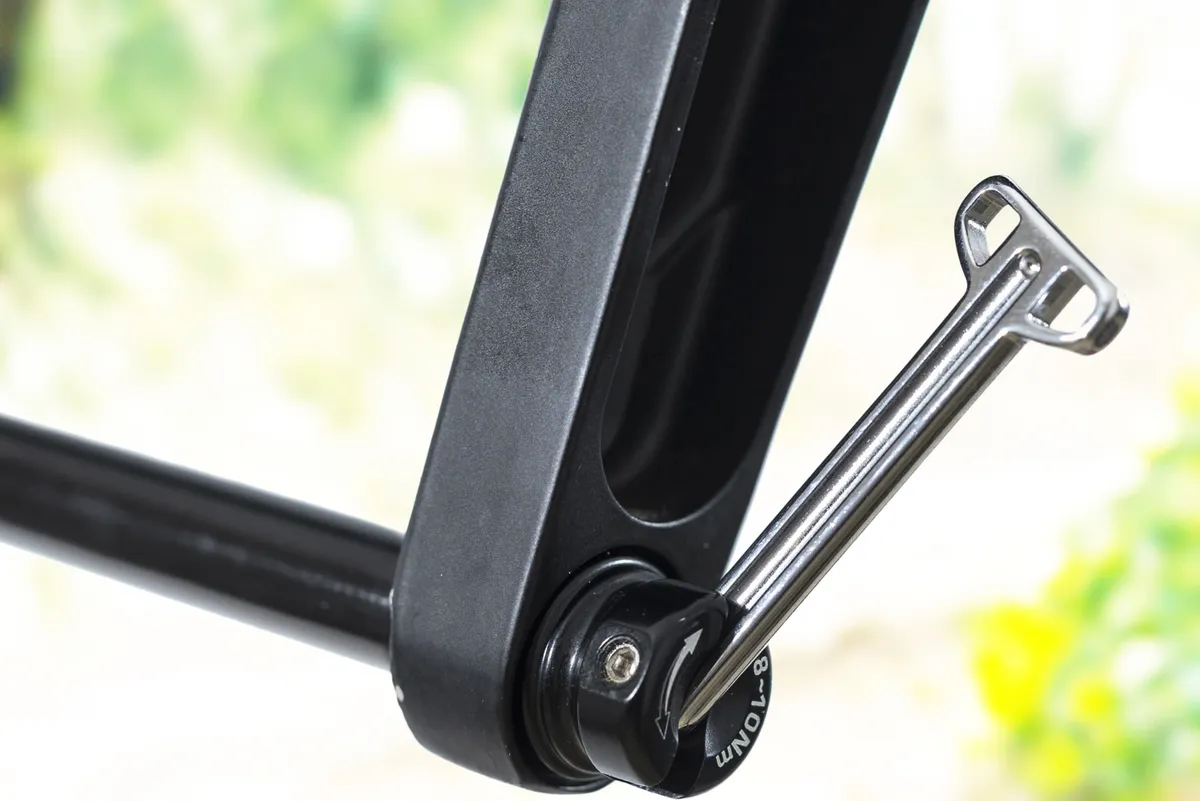
Overall, the KS GTC doesn’t feel like a budget option. It’s very well made and performs well enough to compete with more premium forks. It’s a decent jack of all trades, which is what you want from a gravel fork.
It’s close to the excellent RockShox Rudy XPLR fork on chattery ground and judder-inducing tracks, but not as fast or smooth to respond on smaller bumps.
On bigger stuff, it can’t match the MRP Baxter or the Fox 32 Taper-Cast Factory forks, but is significantly cheaper.
As a more affordable all-rounder, it sets the standard.
How we tested | gravel forks
We tested six of the latest gravel suspension forks, putting them through their paces on varying degrees of gravel terrain.
This included covering hundreds of kilometres over everything from easy sections of ‘princess gravel’ to assess ride smoothness and fast-bump responses, through to singletrack trails and technical woodland descents to ascertain their ability to take bigger hits.
We’ve tested them over a period of nine months, covering summer, autumn and winter, to test how they hold up in all weathers.
Each fork was subjected to a strip-down by expert technician Finlay Patton, owner of Full Factory Suspension, to assess build quality and ease of servicing.
Forks on test
- KS GTC
- RockShox Ultimate XPLR review
- Lauf Grit SL
- MRP Baxter
- Fox 32 Taper-Cast Factory
- Cannondale Oliver Lefty
Product
| Brand | ks |
| Price | 600.00 GBP,600.00 USD |
| Weight | 1470.0000, GRAM () - |
Features
| br_wheelSize | 29in_700c |
| br_offset | 46.0000 |
| br_offset | MILLIMETER |
| br_travel | 40.0000 |
| br_travel | MILLIMETER |
| Features | Axle to crown: 432mm |
